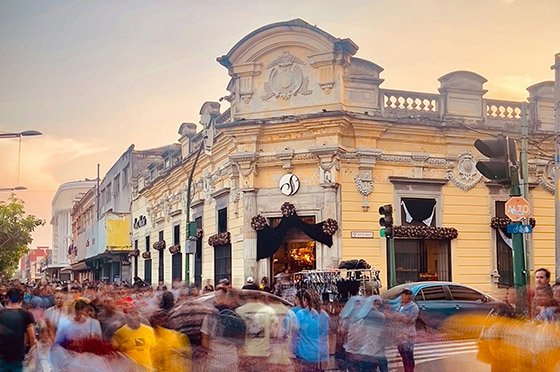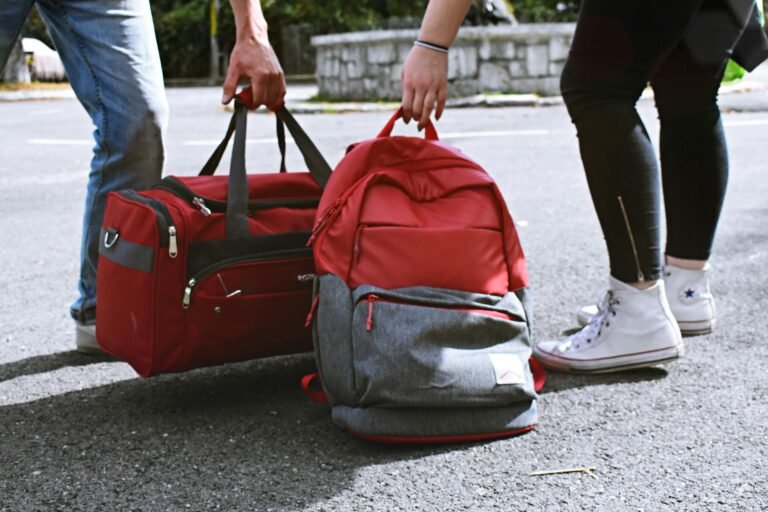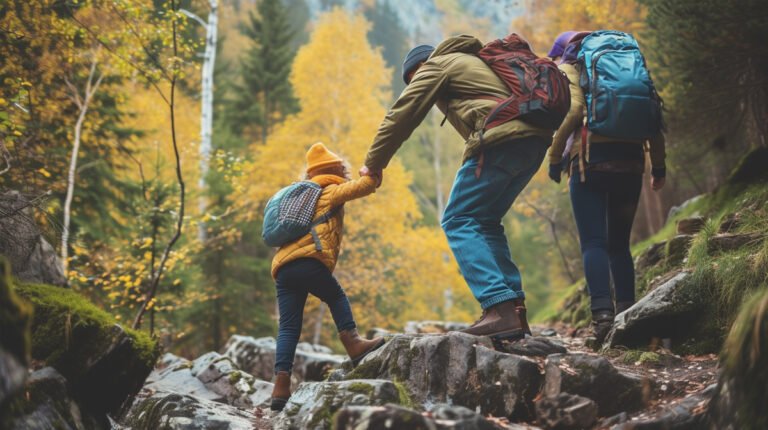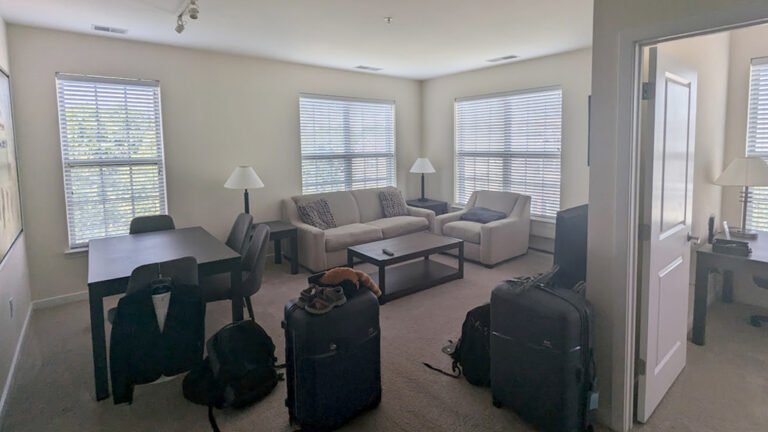Explore Guatemala City
Your Expat Roadmap: Explore comprehensive city guides, download valuable resources, and get insider travel recommendations curated for expats.
This rating is based on personal experiences, reader feedback, and research focused on diplomatic and expat needs.
Guatemala City serves as the political, economic, and cultural heart of Guatemala. As such, it presents a unique set of opportunities and
challenges for diplomats assigned to the country. This guide provides essential information on living conditions, infrastructure,
safety considerations, and cultural nuances to facilitate a smooth transition and effective service in this dynamic environment.
Worldwide Stats for Guatemala
Out of 227 cities ranked worldwide, for cost of living and quality of life, here is how Guatemala City stacks up:


Guatemala City: A Vibrant Blend of History and Modernity
Guatemala City, a bustling metropolis nestled in the heart of Central America, offers a unique blend of colonial charm and modern amenities. With a population of approximately 3.4 million, the city is a melting pot of cultures, with a significant indigenous population and a strong Spanish influence.
Founded in 1541 as Santiago de los Caballeros de Guatemala, the city has a rich history dating back to the colonial era. It has experienced several earthquakes and relocations throughout its existence but has always managed to rebuild and thrive.
Everyday life in Guatemala City is a vibrant tapestry of colors, sounds, and flavors. The city is known for its bustling markets, colorful street performers, and delicious cuisine. Despite its challenges, Guatemala City offers a warm and welcoming atmosphere for residents and visitors alike.
Geographically, Guatemala City is situated in the central highlands of Guatemala, surrounded by mountains and volcanoes. It is a convenient base for exploring the country’s many natural and cultural attractions, including the ancient Mayan ruins of Tikal and the picturesque Lake Atitlán.
More Stats on Guatemala City
51% Lower cost of living, compared to Washington, DC.
Comfortable, Low humidty, year-round (13°C – 26°C /
56°F – 80°F).
A safety Score of 62. Guatemala is Considered Moderately safe.
English is Not Widely spoken. Spanish Will Make it easier for expats.
Expat Living in Guatemala City: A Tapestry of Cultures
People & Culture of Guatemala
Guatemala City’s culture is a fascinating mix! You’ll find a blend of traditions here, which makes it a really interesting place to live. Here’s a bit about what to expect:
- Language: Spanish is the official language. While English proficiency varies, Spanish fluency is highly recommended for professional and daily life. Indigenous languages (such as Kaqchikel, Mam, or Quiché) are also prevalent in certain communities.
- Religion: Predominantly Roman Catholic, with growing Protestant denominations and traditional indigenous beliefs. Religious sensitivities should be respected in all interactions.
- Food: Guatemalan cuisine is a delicious fusion of indigenous, Spanish, and Caribbean influences. Popular dishes include tamales, tortillas, enchiladas, and various stews and soups. The city is also known for its fresh fruits and vegetables, as well as its aromatic coffee.
- Music: Guatemalan music is a vibrant blend of indigenous, Spanish, and African influences. Traditional instruments include the marimba, a large xylophone-like instrument, and the quijada, a jawbone rattle. Popular genres of music include marimba music, son jarocho, and cumbia.
- Other Cultural Aspects: Guatemala City is a city with a strong sense of community and tradition. Residents are known for their warm hospitality, colorful clothing, and love of festivals and celebrations. The city is also home to a vibrant arts scene, with a variety of museums, galleries, and theaters.
The Warmth of the Guatemalan People:
Guatemalans, known for their warmth and hospitality, are welcoming people who are eager to share their culture with visitors. They are known for their friendly demeanor, colorful clothing, and love of festivals and celebrations. While the pace of life in Guatemala City may be slower than in some other cities, the locals are always happy to lend a helping hand and make you feel at home.
Expats often find Guatemalans to be friendly, accommodating, and eager to share their experiences. While Spanish is the official language, many Guatemalans also speak indigenous languages. English is not uncommon within Guatemala City, but when you get out of the metropolitan area, you will want to have some familiarity with Spanish, at a minimum. Depending on where you are traveling, you may need more indigenous language training, or hire a guide. This multilingualism can make communication easier for expats.
Safety & Security in Guatemala City: What You Need to Know
It’s really important to have a clear picture of the safety situation when you’re thinking about living somewhere new. Guatemala City, like many bustling urban areas, has its share of challenges, so let’s talk about what that means and how you can stay safe.
The Realities:
- Crime: Unfortunately, Guatemala City experiences a higher rate of crime than many other places. This can include:
- Petty Theft: Things like pickpocketing or having your bag snatched can happen, especially in crowded areas.
- Violent Crime: There’s also a risk of more serious crime. Although rare with foreigners, it does happen.
- Things to Keep in Mind:
- While it’s important to be aware of the risks, it’s equally important to adopt a balanced perspective.
- Many expats live here safely and enjoy their time.
Practical Steps to Stay Safe in Guatemala City:
- Be Aware: Pay attention to your surroundings, especially in crowded places, on public transportation, or when you’re out at night.
- Secure Your Home: Make sure your accommodation has good security measures (like secure doors, windows, and maybe even a security system).
- Getting Around:
- Consider using ride-sharing apps (like Uber) for transportation. They’re generally considered safer than hailing random taxis on the street.
- If you do take a taxi, it’s best to have it called for you.
- Avoid walking alone at night.
- Valuables: Try not to flash expensive jewelry, phones, or cameras. This can make you a target.
- Common Sense: Trust your gut. If a situation feels unsafe, remove yourself from it.
A Note for Diplomats: If you’re coming to Montevideo as a diplomat, EFM, or MoH, your Embassy and Regional Security Officers (RSO’s) will provide you with thorough security briefings and specific protocols. It’s vital to follow their advice. They have the most up-to-date information and are there to support your safety.
The Big Picture:
- Guatemala City has a lot to offer, and many people have positive experiences living here.
- Like anywhere, it’s about making informed choices and being proactive about your safety.
Cost of Living: A Comparison with Washington DC and London
Guatemala City has a lower cost of living, especially when compared to many other cities worldwide. However, it’s important to note that your standard of living and quality of life can vary based on choice and desires.
Here’s a comparison of typical costs for a family of 3 in Guatemala City, Washington DC, and London:
| Expense Category | Guatemala City (Quetzals) | Washington, D.C. (US Dollars) | London (British Pounds) |
| Grocery Bill (Weekly) | Q1,000-1,500 | $150-200 | £120-160 |
| Inexpensive Meal at a Restaurant | Q100-200 | $15-25 | £12-18 |
| Basic Utilities (Monthly) | Q1,000-1,500 | $150-200 | £120-160 |
| Internet (Monthly) | Q300-500 | $40-70 | £30-50 |
| Fitness Membership (Monthly) | Q500-1,000 | $75-150 | £60-120 |
| Part-Time Housekeeper (Hourly) | Q35-50 | $7-15 | £6-12 |
Source: https://currencyrate.today/converter-widget
Please Note:
- These are approximate costs and can vary depending on individual lifestyle choices, family size and needs, housekeeper experience, and current exchange rates.
- Grocery bills and restaurant costs are estimated for a family of 3 with moderate eating habits.
- Housekeeper costs can vary significantly based on experience, workload, accommodation provided (live-in vs. hourly), and other factors.
It’s crucial to research specific costs and adapt the table to your family’s specific needs and preferences. Consider consulting with expats living in Guatemala or contacting relocation agencies for more tailored information.
Overall, Guatemala City has a lower cost of living than most other places in the world. Some expats find Guatemala City to be a perfect fit for them and their families, while others can find it challenging to completely enjoy their life there, financially speaking.
Climate in Guatemala City
Guatemala City experiences a tropical highland climate, characterized by mild temperatures and distinct wet and dry seasons. This can change quickly when you travel outside of the city. Guatemala is known for having over 30 microclimates that can alter with the elevation – the mountains get chilly, and the jungle areas can get humid.
Temperatures:
- Average High: 25°C (77°F)
- Average Low: 15°C (59°F)
Temperatures remain relatively consistent throughout the year, with mild variations between day and night. However, the city can experience occasional cool spells during the rainy season.
Rainy Season:
The rainy season in Guatemala City typically runs from May to October, with the heaviest rainfall occurring in June and July. While the rainy season can bring occasional heavy showers, it is generally not as intense as in other tropical regions.
Severe Weather:
Guatemala City is located in an earthquake-prone region. While earthquakes are not a daily occurrence, it is essential to be prepared for potential seismic activity. Additionally, the city can experience occasional landslides and mudslides during the rainy season.
Air Quality:
The air quality in Guatemala City can vary depending on factors such as traffic congestion, industrial emissions, and weather conditions. While the city has made efforts to improve air quality, it is recommended to monitor air quality levels, especially during dry seasons or periods of high pollution.
Best Time to Visit:
The dry season, from November to April, is generally considered the best time to visit Guatemala City. This period offers pleasant weather with minimal rainfall, making it ideal for exploring the city and its surrounding attractions.
However, Guatemala is a year-round destination with plenty to offer, so you can plan your trip based on your preferences and interests.
Traffic, Driving, & Transportation in Guatemala City
Guatemala City’s traffic can be challenging, especially during peak hours and times of political unrest – blockades are not uncommon. While many expats choose to drive their own personal vehicles, many rely on Uber, and some choose to hire drivers.
Driving in Guatemala City:
- Driving on the Right: Guatemala City follows the right-hand side of the road rule (similar to the US), which may require adjustment for expats from countries that drive on the left.
- Obtaining a Driver’s License: Expats can drive in Guatemala using their valid international driving permit for a limited period. However, for longer stays, it is recommended to obtain a local Guatemalan driver’s license. The process typically involves passing a written and practical driving test.
- Motorcycle Licenses: Obtaining a motorcycle license in Guatemala follows similar procedures to car licenses, requiring both written and practical tests.
- Traffic and Road Conditions: Traffic congestion can be a significant issue in Guatemala City, especially during peak hours. Roads may not always be in the best condition, and there may be potholes or other hazards. It is important to drive defensively and be aware of your surroundings.

Additional Driving Tips:
- Learn Basic Spanish: Knowing some basic Spanish phrases can be helpful when interacting with traffic police or other drivers.
- Avoid Driving at Night: While it is possible to drive at night, it is generally safer to avoid driving during dark hours, as there may be fewer streetlights, winding roads, unstable engineering, and increased risks of accidents.
- Use Caution at Intersections: Intersections in Guatemala City can be chaotic, and drivers may not always yield to others. Use caution and be prepared to stop or swerve to avoid accidents.
- Consider a GPS: A GPS device or navigation app can be helpful for navigating Guatemala City’s roads, especially if you are unfamiliar with the city.
Public Transportation:
Guatemala City offers a variety of public transportation options, including Uber, buses, minibusses, tuk-tuks, and taxis. However, the most iconic form of public transportation in Guatemala is the “chicken bus.”
- Uber: The best way to get around in Guatemala, if you don’t have your own car, is with Uber. It is easy, fairly reliable, and much safer than the other options below.
- Tuk Tuks: These, typically red, three-wheeled taxis will take you on a fun, sputtering ride throughout the city. It is certainly an authentic experience to have while living in the city. These are best for short rides within smaller cities (like Antiqua or Quetzaltenango) but aren’t recommended for long distances. You also won’t find them in Guatemala City.
For safety reasons, the following are not really recommended for foreigners but are available if you decide to travel this way.
- Chicken Buses: Chicken buses are colorful, repurposed school buses that are used for transportation throughout Guatemala. They are a popular and affordable option for getting around the city and its surrounding areas. Chicken buses are often decorated with bright colors and murals, and they play a significant role in Guatemalan culture.
- Taxis: Yellow Taxis can be called/scheduled. This is a much safer option than the white taxis. White Taxis are available throughout Guatemala City but are known for being troublesome for foreigners. Avoid these.
- Buses: Guatemala City has a network of public buses that serve various parts of the city. Buses are generally more affordable than taxis, but they can be crowded and may not always follow a strict schedule.
Driving and Transportation Summary
While driving can offer flexibility and convenience in Guatemala City, it is important to be aware of the challenges posed by traffic congestion, road conditions, and language barriers. For those who are unfamiliar with the city or prefer a more relaxed experience, hiring a driver can be a convenient and safe option. However, if you are comfortable driving and willing to navigate the city’s traffic, it can be a rewarding experience. Ultimately, the best transportation option for you will depend on your individual preferences, comfort level, and lifestyle.
Internet & Technology in Guatemala City
Guatemala City offers reliable internet connectivity, with a growing number of internet service providers offering broadband and fiber-optic connections. While speeds may vary depending on location and provider, most expats can enjoy fast and reliable internet access for their daily needs.
The standard voltage in Guatemala is 110 volts, with a frequency of 60 Hz. The most common plug type is Type A, which features two parallel flat pins, and Type B, similar to type A but with a grounding pin. These are the typical plugs and voltage for the US. In theory, your US-based electronics should work smoothly, but it is advisable to carry a universal travel adapter to ensure compatibility.
Overall, Guatemala City offers reliable and efficient power and internet infrastructure, making it a convenient and conducive environment for expats and residents alike.
Guatemala uses three types of plugs:
- Type A: Two parallel flat pins
- Type B: Two parallel flat pins with a round grounding pin below
Before relocating, make sure to check the voltage compatibility of your electronic devices. You’ll most likely need adapters and possibly voltage converters to ensure a smooth transition and avoid damaging your belongings.


International Schools in Guatemala City: Options for Expats
Guatemala City offers a variety of educational options for expats, including international schools, bilingual schools, and local schools.
International Schools:
International schools in Guatemala City provide a high-quality education following international curricula, such as the International Baccalaureate (IB) or Advanced Placement (AP). These schools often cater to a diverse student population and offer English as the primary language of instruction.
- Colegio Maya, The American International School of Guatemala: https://www.cm.edu.gt/
- American School of Guatemala (CAG): https://www.cag.edu.gt/
Bilingual Schools:
Bilingual schools offer instruction in both Spanish and English, providing a balanced approach to language learning. These schools may follow either a national or international curriculum.
- Colegio Bilingüe El Verbo – https://www.colegioverbo.edu.gt/
- Colegio Bilingüe La Sagrada Familia – https://holyfamilybilingual.org/es/academica/
- Colegio Internacional Montessori – https://montessori.edu.gt/
Local Schools:
While local schools may not offer the same level of international curriculum or English instruction as international or bilingual schools, they can provide a more immersive experience in Guatemalan culture.
International Friendly Pre-Schools in Guatemala City:
There are several pre-schools in Guatemala City that cater to expats and foreign families. These schools often offer English-language instruction and a welcoming environment for children from different backgrounds.
- Pre-School Montessori
- Pre-School La Granja
- Pre-School El Arca de Noé
It’s important to research individual schools to find the best fit for your child’s needs and preferences. Factors to consider include curriculum, language instruction, extracurricular activities, and the school’s reputation.
Quality of Education Disclaimer:
It’s important to note that these are just a few examples, and numerous other reputable schools and pre-schools exist in Guatemala. When choosing an educational institution, it’s crucial to consider individual needs, educational philosophies, and curriculum options. Every family’s needs are different, and each child has unique educational goals and/or considerations.
Prospective families are strongly encouraged to conduct their own thorough research. The CLO office, and The Office of Overseas Schools are great resources. Researching schools’ websites, attending open houses, and consulting with other expat families can provide valuable insights into the quality of education, school culture, and overall fit for your child. This website can only provide so much detail about schools, as curriculum, resources, and accommodations are constantly changing.
Diplomatic Life in Guatemala
The U.S. Embassy in Guatemala: Size and Scope
- Significant Presence: The U.S. Embassy in Guatemala City is a large and complex operation, reflecting the importance of the relationship between the two countries.
- Staffing: The Embassy comprises a substantial number of both American and locally hired staff. Staffing levels fluctuate and specific numbers are generally not released for security reasons.
- Facilities: The Embassy compound is a sizable complex, often including:
- A chancery (the main office building)
- Consular facilities (for visa services and assistance to U.S. citizens)
- Housing for U.S. staff
- Support buildings
U.S. Embassy in Guatemala
Address:
Boulevard Austriaco 11-51, Zone 16
Guatemala City, Guatemala
Phone: +502-2354-0000
Hours of Operation:
Open now 7:00am – 4:30pm
Website: https://gt.usembassy.gov/
Diplomatic Work in Guatemala:
Obviously, a lot of the work that goes on at an embassy is kept behind closed doors. But, it is widely known that U.S. diplomats in Guatemala engage in a wide range of activities, including:
- Bilateral Relations: Maintaining and strengthening diplomatic ties with the Guatemalan government. This involves:
- Political dialogue
- Negotiations
- Cooperation on shared interests
- Policy Implementation: Implementing U.S. foreign policy goals in Guatemala. Key areas often include:
- Promoting democracy and human rights
- Supporting economic development
- Combating transnational crime
- Addressing migration
- Consular Services: Providing assistance to U.S. citizens in Guatemala. This can include:
- Passport services
- Emergency aid
- Assistance in legal matters
- Reporting and Analysis: Gathering information and analyzing political, economic, and social developments in Guatemala to inform U.S. policy decisions.
- Public Diplomacy: Engaging with the Guatemalan public to explain U.S. policies and promote mutual understanding.
What Guatemala is Like for U.S. Diplomats:
- Dynamic Environment: Guatemala presents a dynamic and often challenging environment. Diplomats may encounter:
- Complex political and social issues
- Economic disparities
- Security concerns
- Rewarding Work: Despite the challenges, diplomatic service in Guatemala can be highly rewarding. Diplomats have the opportunity to:
- Make a real difference in promoting U.S. interests and values
- Work on important issues with significant impact
- Experience a rich and vibrant culture
- Security Considerations: As mentioned earlier, security is a major factor. There are certain areas where US Diplomats are not allowed to go. RSO has security protocols in place to mitigate risks.
- Housing: Much of the housing provided is lovely, safe, and spacious. Some people have stated that they had to live in temporary housing for a period of time before moving into their more permanent housing.
- Cultural Immersion: Diplomats have the chance to learn about Guatemalan culture, history, and society.
This can involve:- Language acquisition
- Interacting with local communities
- Experiencing traditions and customs
- Volunteering
- Area Travel: There are a lot of great opportunities for in-country travel, as well as neighboring countries. El Salvador is a few hour’s drive, and the beaches there are spectacular. Belize is a short plane ride away, as is Mexico City.
Important Notes:
The specifics of a diplomat’s experience will vary depending on their role, agency, and assignment within the Embassy.
Official sources like the U.S. Department of State website and the U.S. Embassy in Guatemala website are the most reliable sources for detailed and up-to-date information.
Please Note:
We’ve tried to provide a balanced and informative overview, keeping in mind the need for accuracy and not sharing anything that could be considered sensitive or confidential in any way. Do your research, utilize the tools available to you, and speak with people in your network for the best information.
Discovering Guatemala City: A Guide to Must-See Attractions
Guatemala City, the vibrant capital of Guatemala, offers a fascinating blend of history, culture, and natural beauty. Whether you’re interested in exploring ancient ruins, immersing yourself in local culture, or simply enjoying the city’s vibrant atmosphere, there’s something for everyone in this captivating city.
Here are some of the top attractions that you won’t want to miss during your time in Guatemala City:
| Places to Visit | Brief Description |
| Plaza Mayor | The national museum showcases a vast collection of artifacts from Guatemala’s ancient Maya civilization. |
| Museo Nacional de Guatemala | The city’s trendy district is known for its upscale restaurants, bars, and shopping malls. |
| Parque Cerro El Carmen | A popular park offering panoramic views of the city, as well as hiking trails and recreational facilities. |
| The city’s trendy district is known for its upscale restaurants, bars, and shopping malls. | A high-end, mostly pedestrian, shopping center with excellent restaurants, city skylines, ziplines, cafes, and a wonderful ambiance. |
| Museo Popol Vuh | A museum dedicated to Mayan culture, featuring a collection of ancient artifacts, sculptures, and textiles. |
| Palacio Nacional de la Cultura | A grand neoclassical building that houses the National Palace of Culture, featuring beautiful murals and historical exhibits. |
| Zona Viva | The city’s trendy district, known for its upscale restaurants, bars, and shopping malls. |
| La Aurora Botanical Gardens | A peaceful oasis in the heart of the city, featuring a variety of plant species, walking trails, and a butterfly garden. |
| Museo de Arte Moderno de Guatemala | A museum showcasing contemporary art from Guatemala and other countries, featuring a diverse collection of paintings, sculptures, and installations. |
| Iglesia de La Merced | A beautiful colonial church with ornate architecture and a peaceful atmosphere. |
Basic Spanish Phrases for Visitors & Expats
These are just a few basic phrases to get you started. Learning even a few words in Spanish can go a long way in showing respect and appreciation to the local people. Please note, that Spanish is the official language of Guatemala, but there are many other dialects spoken across the country. Make sure you research the language where you will be living as well as traveling. The further away you go from the major cities, the less likely people will speak English.
| Meaning | Spanish Phrase | Phonetic Pronunciation |
| Hello | Buenos días (morning), buenas tardes (afternoon), buenas noches (evening) | /bweh-nos dee-as/, /bweh-nos tar-des/, /bweh-nos no-ches/ |
| How are you? | ¿Cómo estás? | /koh-moh es-tas?/ |
| Nice to meet you | Mucho gusto | /moo-cho goo-sto/ |
| Thank you | Gracias | /grah-see-as/ |
| Yes | Sí | /see/ |
| No | No | /no/ |
| How much? | ¿Cuánto cuesta? | /kwan-toh kweh-sta?/ |
| Where is the bathroom? | ¿Dónde está el baño? | /don-deh es-tah el bahn-yo?/ |
Guatemala in Summary:
Guatemala City presents a complex and compelling picture for anyone considering living or working there. It’s a city of contrasts: dynamic and culturally rich, yet also facing significant challenges. Understanding both the opportunities and the realities is key to a successful experience.
For diplomats, Guatemala City offers the chance to engage in meaningful work on important issues, from strengthening bilateral relations to promoting development and security. However, this comes with the need for vigilance and adherence to security protocols.
Ultimately, whether you’re embarking on a diplomatic career or pursuing other opportunities, Guatemala City demands adaptability, cultural sensitivity, and a willingness to navigate a unique environment. By being well-informed and prepared, you can make the most of your time in this fascinating Central American capital.
Information is based on research & user reviews
Last Updated: March 2025







